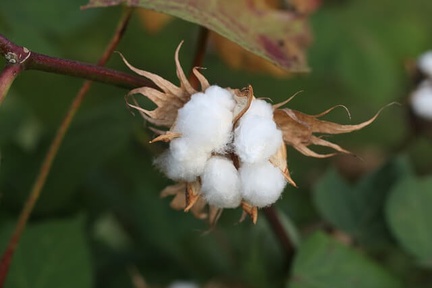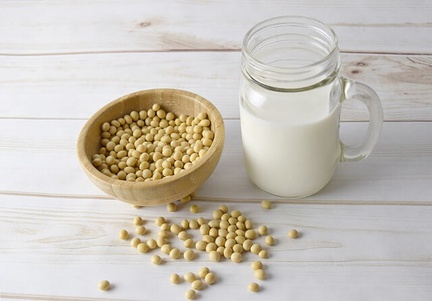Before the 2ndWorld War, coconut was used to help with flu, earache, toothache, skin infections, malnutrition, constipation or cough!
Everything changed after the war when the United States proclaimed that in order to be healthier fats should be hydrogenated!
In the 1950s, the only thing scientists knew how to measure in the blood was cholesterol. By performing blood vessel analyses and cholesterol measurements in people who died of heart attacks, these same scientists established the direct link between the deposits in the arteries and the excess cholesterol (present in these plaques). But atherosclerotic plaques are a completely normal repair (inflammatory) reaction that is or is not excess cholesterol.
But the link between the presence of these plaques and excess cholesterol and the frequency of heart attacks has never been established.
Thus, the whole theory of the harmfulness of excess cholesterol is based on a false premise.
From this premise stem all the bad and false warnings given about the consumption of fear, milk, red meat, eggs or even palm or coconut oil.

Everything was wrong with this theory, but it allowed industrialists to make huge profits by refining vegetable oils.
In our western lifestyle, we have forgotten the benefits of natural and traditional products. Industrial food produced in mass production is full of hydrogenated fats without anyone ever making the link between this type of food and the enormous development of heavy pathologies such as diabetes, cancer, heart attacks or diabetes.
For 50 years, industrialists and advertisers have been recommending the consumption of healthy oils in order to maintain health. By this, they mean the consumption of hydrogenated fats that goes hand in hand with the consumption of totally processed industrial products.
The natural products once served on the table came directly from the farm or from nearby and local farms, which is no longer the case at all today, as most of the dishes we eat have undergone a whole series of transformations and denaturations. Between refining, hydrogenation and the addition of chemical additives, there is not much natural left on our plates.
In the United States, 4 sources of fatty acids were mainly recommended. With hindsight, we realize that these are the 4 most deleterious sources of fatty acids and that they must absolutely be avoided.
What are they?
1 - Canola oil (processed rapeseed)
There is nothing so modified in nature that insects and animals instinctively avoid it.
Although Indian and Asian crops have traditionally used rapeseed oil, it has never been in the quantities used by the Americans.
This plant derived from the mustard family contains cyanide-derived components in such a proportion that insects and wildlife avoid it in the wild.
The refining and deodorization process exposes the oil extracted from rapeseed to such high temperatures that none of the omega-3s have any nutritional value left.
Not to mention that these crops are currently mainly GMO seeds which are known to cause muscular disorders, kidney and heart problems, in addition to endocrine disorders related to the adrenals and thyroid.
You'd better read the labels on the foods you buy, because they're everywhere!

2 - Cottonseed oil, an industrial cocktail of saturated fats and pesticides
Thousands of industrial food products contain them, from canned foods to pre-packaged convenience foods to energy and sports drinks.
However, cotton was not originally intended to be edible. As a result, cotton crops are heavily sprayed with dangerous poisons such as triethylene, cyanide, dicofol and other products designed to kill insects and vermin.
It is well known that these products penetrate the very heart of the plants leaving extremely toxic traces.
If cotton can be used to make pants and shirts, it is strongly advised against consuming its oil, because like rapeseed, most of these crops are genetically modified, which profoundly alters the nutritional qualities of the plant if it has any to begin with. This is not the case...
This oil is even more harmful because it contains a lot of omega-6 fatty acids with structures similar to those of peanuts. These peanuts are well known to be extremely allergenic.
The allergic reactions caused can be fatal, which does not seem to worry the FDA, which does not require any warning claims.

3 - Safflower oil, whose studies prove that the levels of omega-6 it contains are really very toxic and favourable to cardiac pathologies.
It seems that it is not only the fact that an oil is saturated or not that causes excess cholesterol. If that were the case, then safflower oil would be perfect.
What is currently known is that it is mainly the ratio between the quantity of omega-6 and omega-3 that matters in this type of problem.
Researchers have now proven that high levels of omega-6 are excessively toxic. And as luck would have it, it is precisely these fatty acids that are abundant in the food of average Americans.
In study populations, people who replaced saturated animal fats with omega-6 rich safflower vegetable oil, their cholesterol levels decreased significantly, but mortality from cardiovascular events and coronary problems actually increased.
These results prompted researchers to revise their theory linking high risk of heart disease with low cholesterol levels.

4 - Soybean oil, which in most cases is extracted from transgenic soybeans, is a real endocrine disruptor.
It is not so long ago that even health professionals recommended the consumption of soybeans on the pretext that Asian populations who regularly consumed them escaped cancer and civilization diseases.
This is another nutrition myth that must be abandoned. Because if it is true that Asians consume it, like rapeseed, it is in smaller quantities and in mainly fermented forms.
93% of American soybeans are from genetically engineered crops and consumed as anything other than fermented.
It is known that soy contains phytoestrogens which are currently recognized as real endocrine disruptors. Endocrine disruption is further enhanced by the huge amounts of pesticides found in soybeans, which are also known to be endocrine disruptors.
The soybean oil that ends up bottled on the shelves of supermarkets is highly processed and hydrogenated. Even so-called "organic" or "organic" soybean oil has no guarantee of being completely GMO-free. For this reason, it is best to avoid it altogether.

These few revelations will certainly reinforce the idea that you have been lied to and that currently we are all being manipulated and misinformed by advertisers and by the agribusiness lobby that influences the mass media.
It is high time to regain autonomy of information, thought and food.
Sources for this article:
http://www.thealternativedaily.com/alerts/coconutoilsecret/clickspecial.php



